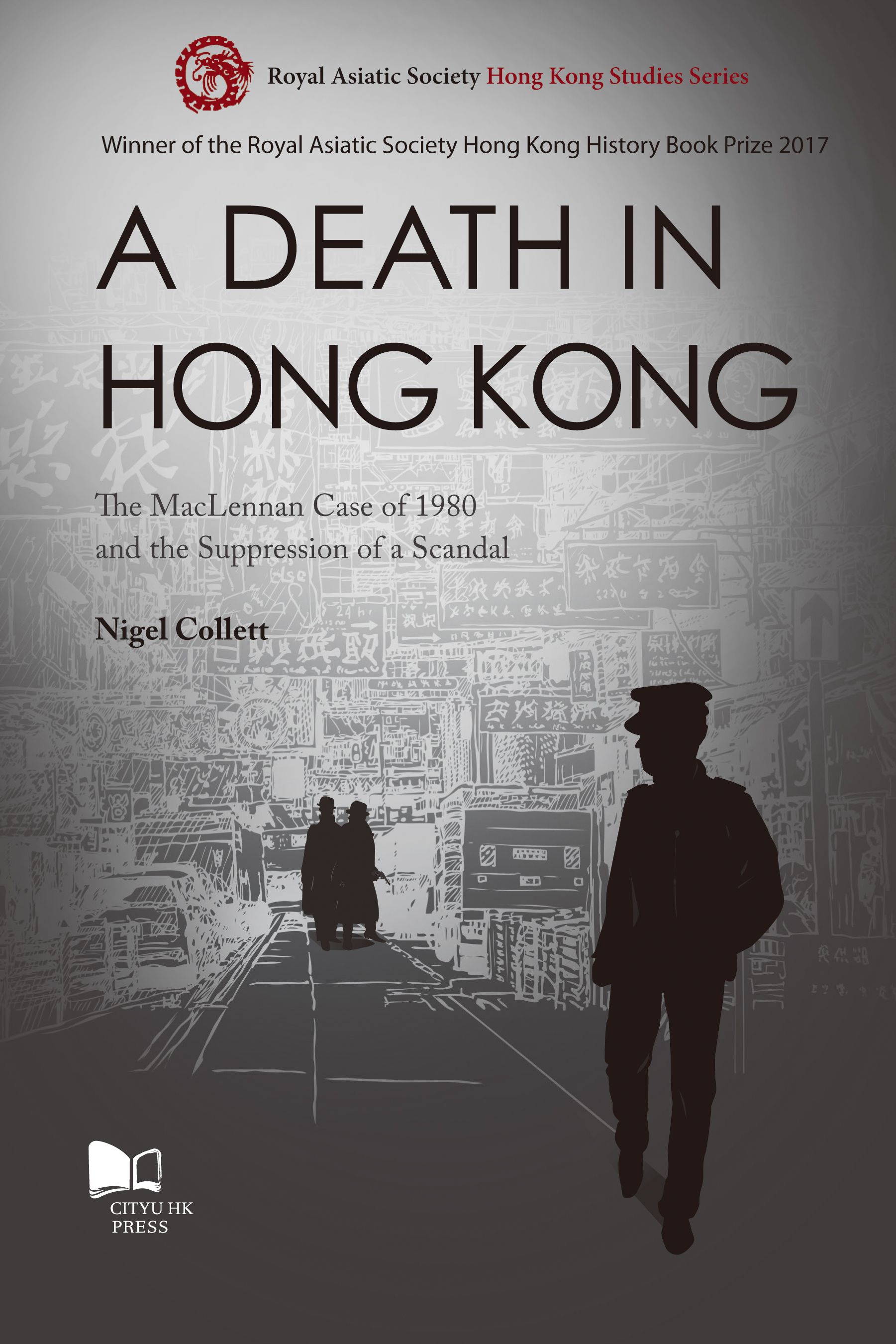
I read two history books these past few weeks that offered an interesting juxtaposition on the craft and the rise of China. The first was Stephen R. Platt’s Imperial Twilight, which is a sweeping panorama of the times before and during Britain’s First Opium War with Qing-era China. I owe you a review on that one, but I have to say it is an incredibly impressive piece of work, even more so given the book’s propitious timing in the midst of a new trade war between Western powers and China.
This weekend though, I had the time to read through Nigel Collett’s A Death in Hong Kong, which was recently published by the City University of Hong Kong. The book chronicles the public inquest into the apparent suicide of a bisexual Scottish police officer of the Royal Hong Kong Police around 1980. The officer, John MacLennan, had apparently seen a list of high-ranking gay members of the city’s elite collected by the authorities, presumably putting a target on his back in the socially conservative climate of the time.

Where Imperial Twilight is sweeping, A Death in Hong Kong is an exacting vignette, depicting a complicated urban society riven with factions just on the cusp of the colony’s handover to Chinese authorities.
The book has got a bit of everything: organized crime in the form of the Chinese tongs; a gay cabal of senior justice and administration officials; prostitution and pedophilia rings; the typical politics of foreign policy in the region; and the machinations of a judiciary straining to prevent a scandal that might rock the whole island and damage the Crown’s authority in its negotiations over the future of Hong Kong with China.
Collett has seemingly put in a sizable amount of work to track down documents from a number of papers and archives, as well as to interview key principals. In so doing, he has adequately reconstructed a complicated case, and brings a measured judgment to bear against the evidence collected.
Yet, the narrative of the book — as rich in shock value and scandal as it is — is just crushed under a mountain of detail. The first portent of this problem is in the book’s opening pages, where the reader is presented with a multi-page dramatis personæ with quite literally dozens of names. The narrative suffers deeply from extraneous details and side discussions, although it is chronological and not hard to understand.
The book does an adequate job of covering its subject, bringing an important legal case in Hong Kong’s history to light and depicting the government’s strain to contain the fallout from the judicial process. However, one can’t help feel that there is an incredible missed opportunity here for a book to scratch deeper into these complicated characters. It’s not The Wire, but it really, really could have been.
Part of the challenge here, which Collett brings up occasionally, is that there are just serious holes in the evidence that make certain conclusions hard to reach. Many characters lack any sort of characterization at all, a function of the lack of sourcing around their personalities and tics. But, one can’t help but feel that this is precisely the work that needed to take place in order to make the book the best it could be.
A Death in Hong Kong is interesting and skimmable, but misses the mark pretty widely. Perhaps another attempt at the subject by a more descriptive and emotive writer will finally bring the case its proper justice.
Image via Wikimedia used under Creative Commons.